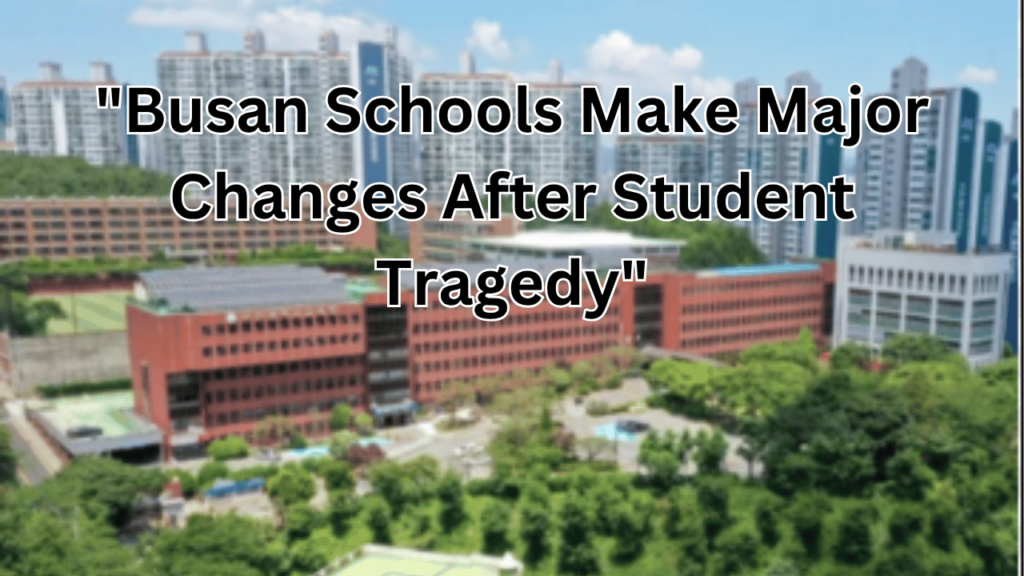Busan Student Tragedy Highlights Critical Mental Health Needs
The Busan student tragedy has sent shockwaves through South Korea’s education community. On June 21, 2025, three female high school students from Busan’s A High School were found in an apartment complex garden. This heartbreaking incident has prompted urgent discussions about student mental health support systems.
The Busan student tragedy occurred in the early morning hours when emergency services responded to the scene at 1:39 a.m. The three second-year students were close friends who attended the same school. Security footage showed them entering the apartment building together at 11:42 p.m. the previous evening.
This devastating event has highlighted the intense academic stress facing Korean students. The pressure to succeed academically can become overwhelming for young people trying to navigate their formative years.
Understanding Academic Stress in Korean Schools
Academic stress in Korea has reached concerning levels that demand immediate attention. Students face grueling study schedules, intense competition for university admission, and societal expectations that can feel impossible to meet. The Busan student tragedy demonstrates how this pressure can become unbearable.
Korean students often study 12-16 hours daily, including regular school hours and private tutoring sessions. This academic stress creates a perfect storm of exhaustion, anxiety, and hopelessness. Many students report feeling trapped in a system that values test scores above their wellbeing.
The education system’s competitive nature leaves little room for students to develop coping skills or seek help when struggling. Parents and teachers sometimes unknowingly contribute to this pressure by emphasizing academic achievement over mental health.
Response from Educational Authorities
Following the Busan student tragedy, educational authorities moved quickly to address the crisis. The Busan Metropolitan Office of Education formed a joint response task force to investigate the circumstances and implement preventive measures.
A crisis management committee convened at the students’ school to support affected students and staff. Educational supervisors were dispatched to provide grief counseling and coordinate with families during this difficult time.
The Superintendent of Education called an emergency meeting to discuss systemic changes needed to prevent similar tragedies. This response shows growing recognition that academic stress requires immediate intervention at all levels of the education system.
See Also: Lee Jang Woo Wedding Plans With Actress Jo Hye Won This November
Building Better Support Systems
Schools across Busan are now implementing comprehensive mental health programs. These initiatives include regular counseling sessions, stress management workshops, and peer support groups where students can share their experiences safely.
The Busan student tragedy has prompted educators to rethink traditional approaches to academic pressure. Schools are exploring ways to reduce homework loads, provide more study breaks, and celebrate diverse forms of student achievement beyond test scores.
Mental health professionals are working with schools to train teachers in recognizing warning signs of severe stress. Early intervention can make the difference between a student who struggles and one who receives the help they need.
Final Thoughts: Learning from the Busan Student Tragedy
The Busan student tragedy serves as a wake-up call for South Korea’s education system. We must create environments where students feel supported, valued, and hopeful about their futures rather than overwhelmed by impossible expectations.
Every student deserves access to mental health resources and adults who prioritize their wellbeing. What changes do you think would help create more supportive school environments for struggling students?






